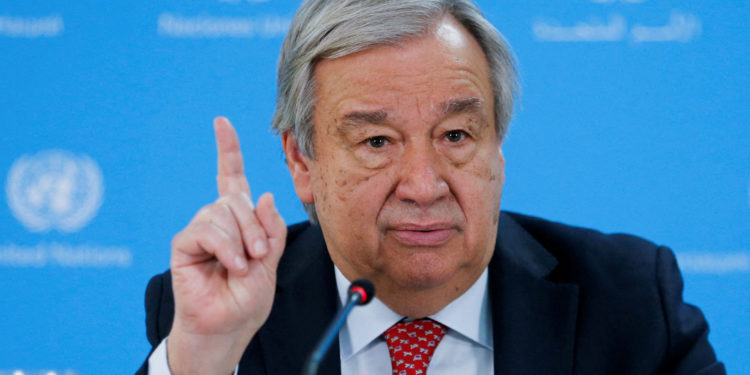The United Nations Secretary General António Guterres has called upon political and business leaders to prioritize a global strategy dealing with the twin threats of artificial intelligence and the climate crisis.
In a special address at the World Economic Forum in Davos, Switzerland, Guterres warned that the rapid development of AI could result in serious unintended consequences.
“Every new interaction with generative AI increases the risk of serious unintended consequences. The technology has enormous potential for sustainable development, but as the International Monetary Fund has just warned us, it is very likely it will worsen inequality in the world,” Guterres said.
The International Monetary Fund (IMF) released a report on Sunday stating that the increasing prevalence of artificial intelligence (AI) could impact nearly 40% of jobs worldwide. The report also cautioned that the potential consequences of AI on the global workforce are expected to exacerbate overall inequality in the majority of situations.
Microsoft CEO Satya Nadella reiterated on Tuesday that he believes there is a need for international collaboration on artificial intelligence (AI) and consensus on establishing standards and suitable guidelines for the technology. The U.S. tech giant is a major player in AI development, having poured billions of dollars into OpenAI, the firm behind the popular chatbot ChatGPT.
“Some powerful tech companies are already pursuing profits with a clear disregard for human rights, personal privacy, and social impact. This is no secret,” Guterres said, without naming any specific firms.
“These two issues, climate and AI, are exhaustively discussed by governments, by the media, and by leaders here in Davos. And yet, we do not have an effective global strategy to deal with either,” he said.
Advocates of AI, on the other hand, say the technology can be harnessed to benefit humanity in several ways, including fast-tracking patient diagnoses, helping to model climate change, and fighting cyberattacks.


















